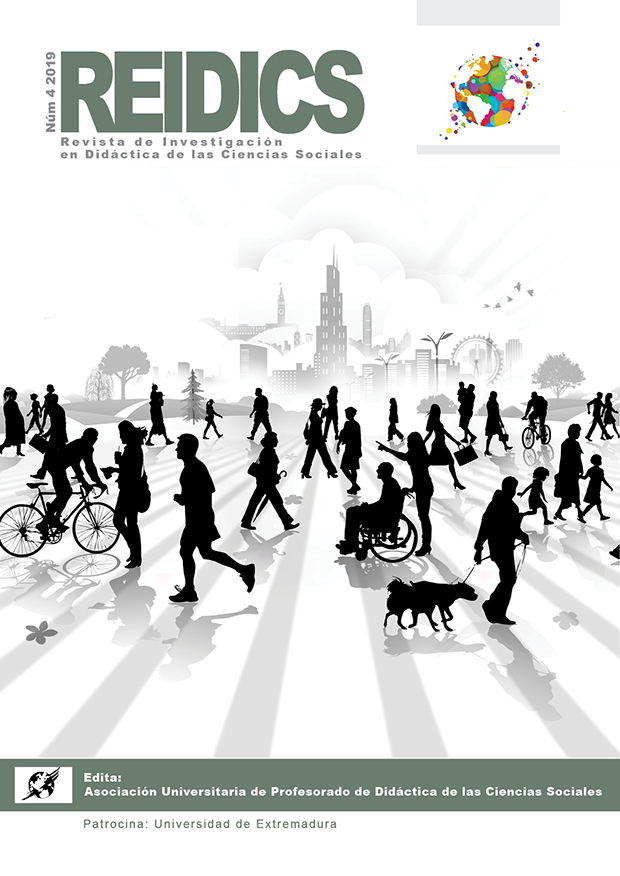Researching for innovating: today's and historical societies as a research field
DOI:
https://doi.org/10.17398/2531-0968.04.4Keywords:
didactic innovation, educational research, present and past societies, social estudy education, scholl research fieldAbstract
I
In this paper, a review of the author's research and innovation trajectory is carried out based on the design of the Research Field of Present and Past Societies and its experimentation in the initial formation of Primary Education teachers. It is part of the establishment of three stages in this trajectory, as well as the location of the same within the framework of the IRES Project and the Curriculum Project Investigating Our World. As a third level of concretion of this project, the aforementioned Research Field is presented as an organizer of scholastic and professional knowledge, to then provide some results of the research and didactic innovations developed with it in five lines of work: research on the conceptions of Primary students, as well as of students for teacher, teaching innovation in initial training and, in particular, in the curricular design in Heritage Education and analysis of textbooks. Finally, a series of conclusions and proposals are established in relation to research and innovation in Social Sciences Education derived from the analyzed case, among which we highlight the promotion of research and innovation within the framework of a curricular project, as well as research projects and teaching innovation and the need for a greater impact of didactic research in the practice of teaching, in the improvement of student learning, in the initial and permanent training programs, educational legislation and the elaboration of textbooks.
Downloads
Published
Issue
Section
License
Aquellos autores/as que tengan publicaciones con esta revista, aceptan los términos siguientes:
- Los autores/as conservarán sus derechos de autoría y garantizarán a la revista el derecho de primera publicación de su obra, el cual estará simultáneamente sujeto a la Licencia de reconocimiento de Creative Commons 4.0 BY-NC-SA que permite a terceros compartir la obra siempre que se indique su autor y su primera publicación en esta revista.
- Los autores/as podrán adoptar otros acuerdos de licencia no exclusiva de distribución de la versión de la obra publicada (p. ej.: depositarla en un archivo telemático institucional o publicarla en un volumen monográfico) siempre que se indique la publicación inicial en esta revista.
- Se permite y recomienda a los autores/as difundir su obra a través de Internet (p. ej.: en archivos telemáticos institucionales o en su página web) antes y durante el proceso de envío, lo cual puede producir intercambios interesantes y aumentar las citas de la obra publicada. (Véase El efecto del acceso abierto).
- Los autores y autoras han respetado la política de autoría de esta revista.







